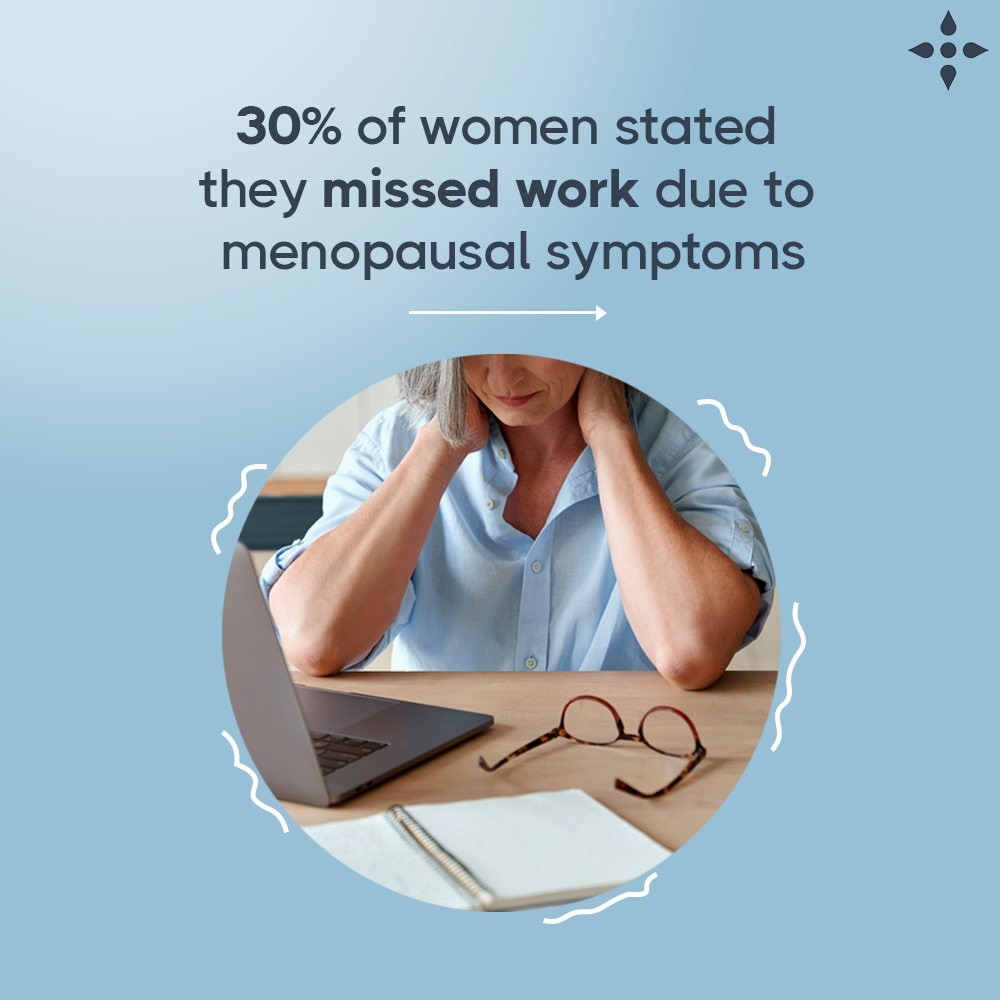Challenges A Working Woman Faces Managing Symptoms Of Menopause
Updated: June 29, 2022 8 min read

Menopause is the phase in a working woman’s life, often filled with severe challenges. It threatens her productivity and disrupts efficiency at work.
This blog discusses the common challenges working women face in the current scenario.
What is menopause?
Menopause is a natural phenomenon that occurs among women aged 45-55 when the menstruation cycle stops. The menopause symptoms vary among women, with feelings of fatigue, irritability, dizziness, and cold and hot sweats experienced simultaneously and more pronounced in some women. In contrast, others go through slighter and fewer symptoms.
Challenges women face during menopause
Studies show that menopause can negatively affect female workers’ performance and attendance.
Some related challenges women face are listed below:
Intimate detail
Most men and even women consider menopause or menstruation too personal or outright shameful to discuss openly. Such a mindset deters working women from discussing their menopause-induced problems with managers and colleagues, and they suffer silently.
Mental health
It can trigger mental and psychological issues such as anxiety, mood swings, low self-esteem, and brain fog. These can lead to poor workplace performance, low concentration, and reduced productivity.
Visible changes
Hot flushes, caused by changing hormone levels, are a common physical characteristic of menopause, visible as sweatiness and redness. Additionally, pain in the muscles, joints, the entire body, and headaches accompany. Consequently, these physical afflictions combined with a lack of sleep significantly affect workplace productivity.
Hence, a working woman going through menopause should regularly visit a health care advisor for expert guidance. Doing so ensures one effectively deals with a challenging situation.
Corporates addressing challenges of menopause
According to research, most women take about 32 weeks of leave from work to deal with menopause, while thousands of others quit their jobs. The reason? Plain ignorance!
Age-old policies
Most countries have obsolete work policies that do not mention women's rights/problems during menopause. What’s more, talking about menses, let alone menopause, is taboo in numerous companies across the globe.
Ignorance
Companies fail to consider the effects on a woman during times of menstruation, pregnancy, and menopause caused due to the following minor inattentions:
- Distance between the parking lot and office.
- Fluctuating AC temperatures.
- Uncomfortable work chairs.
- Disruptive schedules.
Another characteristic of menopause is brain fog, which is visible as forgetfulness, lack of concentration, and hot flushes. However, ignorance about menopause sidelines these grave challenges as the usual fallouts of a hectic corporate life.
Considerations
The following changes can be made in workplace policies considering women's challenges during menopause.
Open discussion
Notably, the stigma or taboo associated with menopause should be rejected immediately and instead made a topic of frank and candid discussion. Companies must focus on internal communication by holding seminars and campaigns on:
- Spreading awareness about menopause.
- Finding ways to treat the symptoms.
- Offering telemedicine facilities.
Discussions on these issues will make women feel understood and empower them. Male employees will also begin empathising with and understanding their female colleagues better and becoming increasingly non-judgmental.
Better facilities
Employers should ensure accessibility of necessary facilities for every woman employee experiencing menopause by providing restrooms, personal desk fans, uniforms made of comfortable and cool fibres, rest breaks, health care access, flexible work timings, and work-from-home options.
Mental health support
Supporting working women dealing with menopause-induced challenges will do much good.
Also, employers must be non-judgmental and remain open to friendly chats on topics such as:
- Mental health accessibility.
- Menopausal symptoms, complications, and management.
- Poor work-environment issues.
To an extent, this support will help women in menopause overcome mental challenges and remain stress-free.
Consult
If symptoms get too severe, contact our health care experts at Zuri Healthcare. We understand how it is for a woman to handle her family, undergo menopause, and perform well at work simultaneously.
With the above issues in mind, we created Zuri Healthcare, an application to avail telemedicine services. Seek advice from a medical professional via video sessions; call one at home through our app, among other services.
This way, symptoms of menopause can be efficiently dealt with from the comfort of home.
Closing thoughts
Menopause should be an undisguised topic of discussion among people in the workplace. Also, it is the moral responsibility of company policymakers to provide adequate formal and informal support to working women experiencing menopause. However, we cannot control immediate policy revisions.
Nevertheless, there is something we can do. Be aware, accept menopause as a phase of life, understand symptoms and management practices, and take medical assistance as needed.